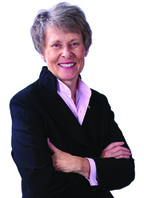An astronaut’s view of our planet
By Dr. Roberta L. Bondar
May/June 2011
Return to Table of Contents
Print Article
If my first visual encounter with Earth from space made a lasting impression on me, the final view filled me with the anticipation and excitement of exploring the planet around which I had orbited for more than eight days. While floating within view of the Earth, I embraced the new vision of my world, but back on the ground I searched for a way to express what I had seen from space and how I felt about the planet.
It is very real and clear from the space perspective that the forces of nature will keep reshaping the planet. Plants, animals, and humans will constantly remodel and renew to meet the challenges or we will all vanish. But our environment cannot adapt quickly enough to compensate for our alien intrusion. Because humans have developed frightening technologies and have evolved rapidly into a resource-depleting species, we, and we alone, have the ultimate responsibility to protect the Earth, and each other, from ourselves. We must show our respect and admiration for our natural world and work for peace, not for destruction and extinction.
There are at least three reasons to set aside and protect the land and the sea. First, protecting biodiversity—a mix of plants, animals, and micro-organisms, ensures that they can continue to evolve and maintain a healthy gene pool. Second, watching for shifts in the growth of other creatures can warn humans of existing and impending change. Third, learning how other life forms use sunlight, soil, and water to respond to long-term weather changes can help humans to adapt, too. Unlike these life forms, which must seek a better place or die, we humans can cross over many habitats because of our technical ability.
Canada is unique in having large undeveloped and relatively untouched tracts of land and water. That is reason enough to be actively caring for our natural environment and our heritage. The message is clear: If we do not protect the environment of our planet, we eventually will fail to keep our bodies, and our souls, nourished.
After observing the planet for eight days from space, I have a deeper interest and respect for the forces that shape our world. Each particle of soil, each plant and animal is special. I also marvel at the creativity and ingenuity of our own species, but at the same time, I wonder why we all cannot see that we create our future each day, and that our local actions affect the global community, today as well as for generations to come.”
Dr. Roberta Bondar, the first Canadian woman to go into space.
Return to Table of Contents
Print Article
